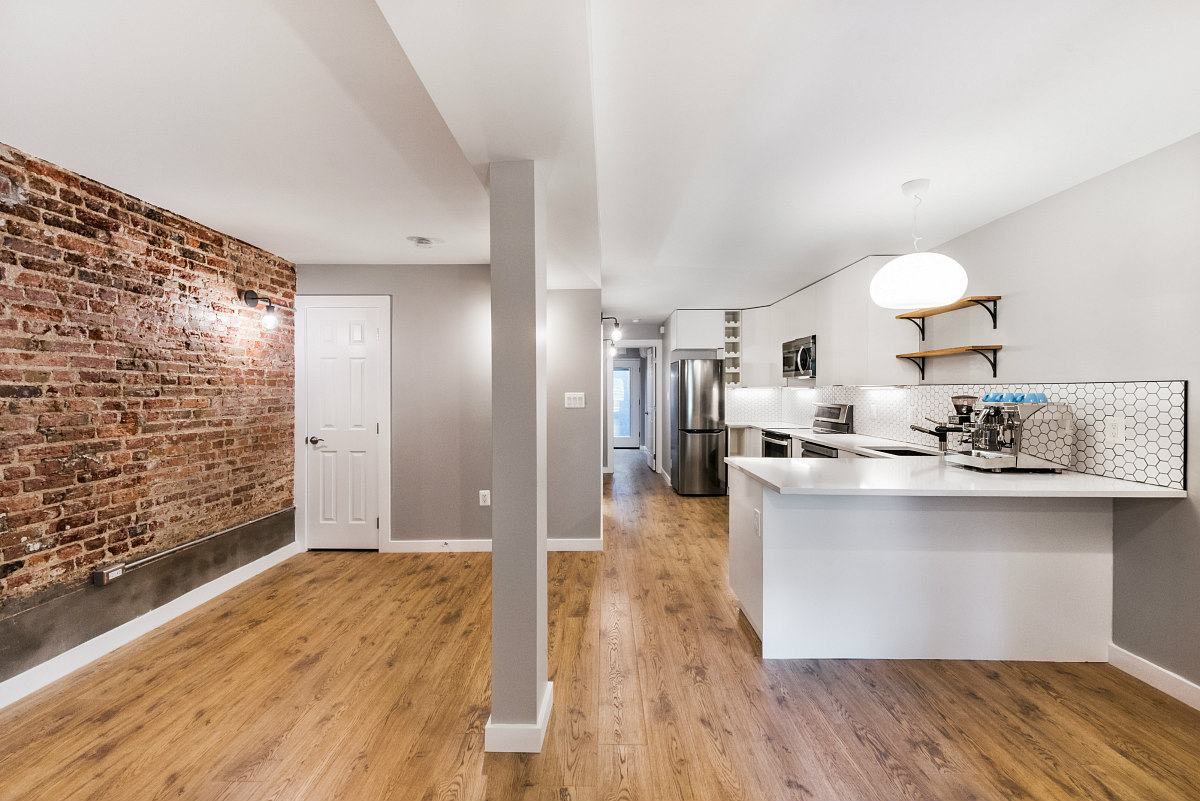What's Hot: Cash Remained King In DC Housing Market In 2025 | 220-Unit Affordable Development Planned Near Shaw Metro
 The ADU Approval Process in DC is Inefficient, But DCRA is Not Solely to Blame
The ADU Approval Process in DC is Inefficient, But DCRA is Not Solely to Blame
✉️ Want to forward this article? Click here.

Since the DC zoning code was clarified three years ago to permit more by-right construction of accessory dwelling units (ADUs), UrbanTurf has heard anecdotally about the frustrations associated with the ADU approval process, particularly as it relates to inconsistent advisement from DC's Department of Consumer and Regulatory Affairs (DCRA). While the tide is turning somewhat, the process can still be frustrating for even the professionals helping homeowners get ADUs built.
This week, UrbanTurf offers a dose of reality about the ADU approval process from an architect with experience guiding clients with these projects. Architect Ileana Schinder has designed or consulted on ADUs for homeowners in DC and the suburbs for several years.
"In the last two years, DCRA has gotten the building code and additional dwelling unit lined up, so the level of misunderstanding and disagreement in interpretation, based on my experience, has gone down significantly," Schinder told UrbanTurf. "The comments I get from reviewers are a lot more consistent."
However, there are still inefficiencies with the process, primarily when it comes to transparency and communication.
DCRA reviews each component of the plans (water, electricity, etc.) that are submitted to get building permits for a new ADU. In order to get approved, however, the plans also require review from agencies like DC Water, Pepco and the Department of Energy and the Environment (DOEE). The disparate requirements for each agency compared to DCRA, and the lack of communication between those agencies and DCRA, can delay the approval process. For example, some ancillary agencies do not use online submission platform ProjectDox to upload and store application documents like DCRA does, so documents submitted to one agency aren't efficiently brought to the attention of another.
"We lost seven weeks on a project waiting for communication between DOEE and DCRA," Schinder said. "Everyone seems to be within their own system. That's why, when people point fingers at DCRA, I want to make sure [people know] it's not just them."
With so many agencies involved, an ADU application undergoes several concurrent processes with standards that vary based on the agency's requirements. Consequently, the homeowner and their representative often have to play a game of telephone in order to get in touch with the appropriate person to clarify and accomplish necessary steps. And this is with a by-right ADU; the process has even more layers of bureaucracy if the subject site is in a historic district or if any zoning permissions are needed.
Besides the lack of inter-agency efficiency and communication, Schinder also thinks other aspects of the process can be unnecessarily difficult. For example, one can only apply for a certificate of occupancy for an ADU after getting building permits rather than opting into the C of O process at the outset.
It remains to be seen whether any changes will be implemented in DC to simplify the ADU approval process, but homeowners' interest in ADUs hasn't been affected by the difficulties associated with the process.
"There has been a huge uptick of interest in ADUs," Schinder shares, stating that her firm went from getting one "tentative" request every three months in 2015-2016 to engaging much more regularly on ADUs. "Now, people are very educated about it...there's a lot of awareness of what it is and how to do it."
See other articles related to: accessory apartments, accessory apartments dc, accessory buildings, accessory dwelling units, accessory dwellings, adu, building permits, dcra, department of consumer and regulatory affairs, ileana schinder
This article originally published at http://dc.urbanturf.production.logicbrush.com/articles/blog/the-adu-approval-process-is-inefficient-but-dcra-is-not-solely-to-blame/15846.
Most Popular... This Week • Last 30 Days • Ever

Only a few large developments are still in the works along 14th Street, a corridor th... read »

Today, UrbanTurf is taking a look at the tax benefits associated with buying a home t... read »

Lincoln-Westmoreland Housing is moving forward with plans to replace an aging Shaw af... read »

The small handful of projects in the pipeline are either moving full steam ahead, get... read »

A potential innovation district in Arlington; an LA coffee chain to DC; and the end o... read »
DC Real Estate Guides
Short guides to navigating the DC-area real estate market
We've collected all our helpful guides for buying, selling and renting in and around Washington, DC in one place. Start browsing below!
First-Timer Primers
Intro guides for first-time home buyers
Unique Spaces
Awesome and unusual real estate from across the DC Metro














